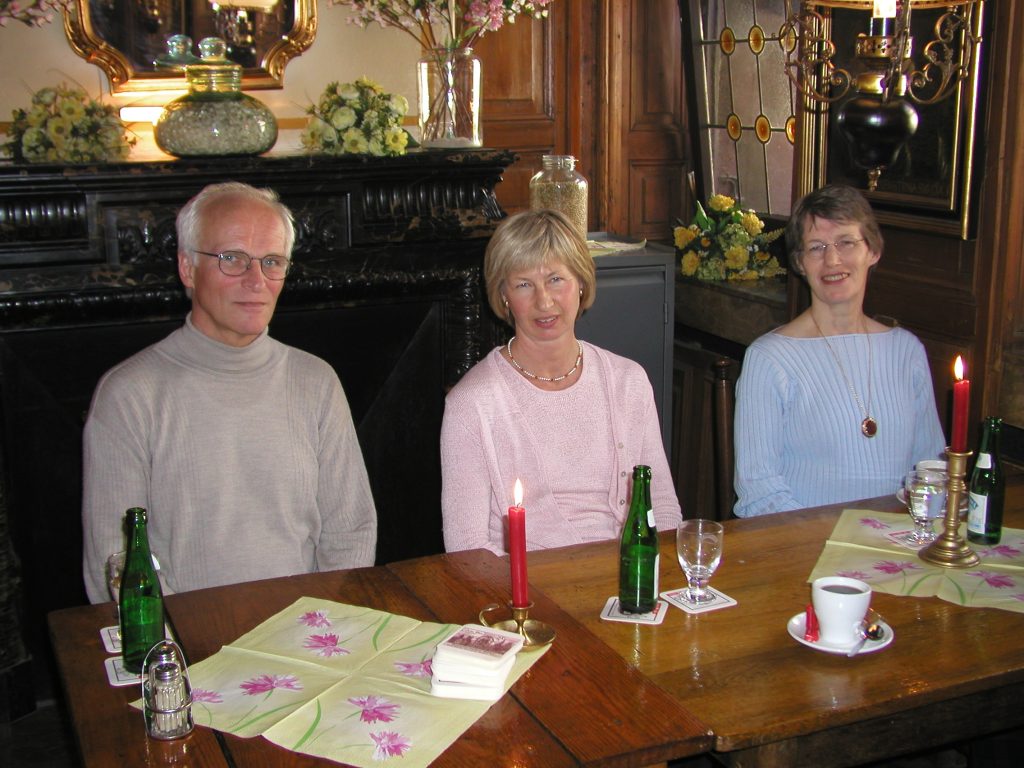We remember and celebrate the life of Dr. Barbara Aland (12 April 1937–10 Nov 2024), whose outstanding influence in the field of New Testament textual criticism and leadership at the world’s premier text-critical institute will last for many years to come.
On behalf of CSNTM, we extend our heartfelt condolences to the INTF team for the loss of Barbara Aland, Director of the Institute for New Testament Textual Research (INTF) in Münster from 1983 to 2002. Our thoughts are with her family, friends, and colleagues as they navigate through times of sorrow. May they find the comfort and support so needed at this moment.
Our founder and CEO, Daniel B. Wallace, had the privilege of meeting Dr. Aland and having spirited dialogues with her on matters textual in 2002 and 2008. Her insights and passion for the field left a lasting impact on him and countless others who had the honor of knowing her.

With deepest sympathy and greatest gratitude,
The CSNTM Family
Read the English translation of the obituary by Prof. Eve-Marie Becker on the passing of Barbara Aland below, or view it in its original language here.
Barbara Aland Gestorben: From Eros to Logos
Anyone who opens the basic text of the New Testament will read Barbara Aland: The theologian, who was trained as a philologist, has died at the age of 87.
The name Barbara Aland is associated with nothing less than an era of New Testament textual research. The Novum Testamentum Graece, which forms the basis of all academic work on the New Testament and its presumed “original text”, is colloquially known as the “Nestle-Aland”.
The history of this book and its twenty-eight editions since 1898 is also largely the life story of Ms. Aland, who taught as a professor of church history and New Testament textual research at the Protestant Theological Faculty in Münster from 1980 onwards. Barbara Ehlers, born on April 12, 1937 in Hamburg, studied to be a classical philologist whose academic oeuvre ranged from classical Greek antiquity to ancient Christianity. Her dissertation, accepted at the University of Frankfurt in 1964, was published in 1966 under the title “A pre-Platonic interpretation of Socratic Eros. The dialogue ‘Aspasia of the Socratic Aeschines’” was published.
Head, hand and foot work
Since her marriage to Kurt Aland (1915 to 1994), who founded the Institute for New Testament Textual Research (INTF for short) at the University of Münster in 1959, Barbara Aland devoted her academic life mainly to researching New Testament manuscripts and their history – including hand and foot work. Barbara Aland was able to give an impressive account of how she and her husband – following in the footsteps of Constantin von Tischendorf – organized trips to St. Catherine’s Monastery on Sinai and to many other places to collect manuscripts and edit them upon their return.
When Barbara Aland was director of the INTF from 1983 to 2004 and was responsible for, among other things, the publication of the 27th edition of the “Nestle-Aland” and the development of the Editio Critica Maior, the “Great Text-Critical Edition”, she brought New Testament text research into a new era of genealogical methodology and computer-aided working methods. The fact that research into the New Testament text in Germany and from Münster was and has remained internationally leading to this day is also Aland’s achievement. Various honorary doctorates, academy memberships and awards, such as the Federal Cross of Merit on Ribbon (2011) or the Burkitt Medal for Biblical Studies (2016), were well-deserved recognition for Barbara Aland’s work at the INTF, the Münster Bible Museum or for the Hermann Kunst Foundation.
After her retirement, Ms. Aland returned to her real passion: working on the early debate between Christianity and “pagan” philosophy in authors such as Plotinus, Porphyry, Iamblichus and Marius Victorinus. Relevant publications on “Gnosis” followed. Until the very end, the Platonism researcher Barbara Aland, who founded the Academia Platonica Septima Monasteriensis in 1999 together with Matthias Baltes, Jens Halfwassen, Thomas Leinkauf and others, sought to understand why Platonism and Christianity were able to gradually converge but ultimately remained different. In one of her last publications (2022) she wrote on this: “for the fact that God could bend down to man, that God could die and be resurrected as a redeemer for man, was not only absolutely unthinkable for Platonic reason, but also completely unnecessary.”
